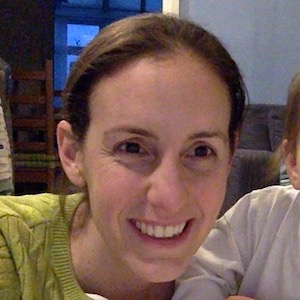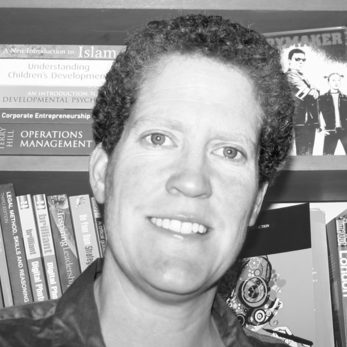Interview with Sara O’Connor [Full Stack Developer]

Sara O’Connor worked in children’s publishing for 13 years and is now a full-time web developer. Frustrated with the cost and creative limitations of outsourcing good digital ideas (check out this article), she decided to retrain as a programmer. She now works with Emma Barnes at Consonance (the new name for Bibliocloud), helping to build the software she wished she had when she worked in publishing. Sara will be joining our panel at BookMachine Unplugged 2018: Talking Tech.
1) What makes you passionate about coding?
I’m passionate about coding because learning to code means taking control. I don’t have to ask anyone for permission or money to try out an idea; I just have to work out how to do it myself. The opposite is also true. Without basic knowledge of coding, I give up control to outside people, risk paying too much, or could write bad briefs that result in the wrong product. Children are required to learn programming basics at school. Technology companies have taken control of publishing. It’s no longer acceptable to be afraid or ignorant of programming; it’s a basic life skill. Plus, it’s really fun: a few weeks ago, I made virtual reality games on Google Cardboard with six- to ten-year-olds on the cospaces platform at the Institute of Imagination.
2) Which editorial skills have you found transferable to coding?
Being an editor for thirteen years has given me a huge leg up with programming. I have respect for the semicolon; I understand the importance of syntax, so it comes naturally. After being paid to read hundreds of thousands of pages, I can quickly spot errors and words in many lines of code. Learning to code requires a lot of reading, close reading for understanding, which any editor will be familiar with. I’ve also written novels, and I can confirm that having your code commented on by peers feels just like an editor commenting on your prose — agony, but you can see the truth in what they’ve critiqued.
3) What’s the most useful aspect of coding that benefits editors?
My favourite example of how coding benefits editors — because it makes my editor friends gasp — is that the talented Nick Barreto from the awesome team at Canelo used the Consonance (the new name for Bibliocloud) API and a Slack chat bot to hook up an automated conversation with their metadata. Within their normal internal communications app (the instant messaging system Slack) he can type “/consonance isbn [and an existing Canelo ISBN]” and instantly retrieve the basic metadata for that title: price, pub date, latest description, etc. It can also return all the titles publishing on a particular publication date. By instructing a computer to talk to another computer in a specific way, he’s saved himself heaps of clicks and time: no signing in, no navigating to a specific page, no leaving his usual workflow. Just a one line command to get what he needs. Talk about automating away the drudgery! It’s brilliant! (Plus, he open sourced the code, so that any other publisher using Consonance can do the same)
4) What do you look forward to next?
My nearest goal is to launch a side project that I’ve been working on with my friend and children’s author Kate Scott, called Book Pen Pals. The project started when Kate tweeted about sending school children book recommendations by postcard to introduce them to a wide range of modern British children’s literature. Her tweet went a bit viral, and suddenly, she had loads of other author and illustrators wanting to take part. But she was having to manually match teachers and authors/illustrators, taking into account geography and age ranges, and it is hugely time consuming. I could see it was a manual labour nightmare, that wouldn’t be sustainable and that the wonderful initiative might drown under its own success. Kate is a writer, and this was a volunteer project — her time needs to be spend writing. What it needed was to automate away the drudgery — a way to make the matching self-serve and safe. So, over the summer, I’ve been building the website to support this fantastic initiative as a volunteer. It helps me learn more about how to build and launch a highly interactive website. Plus, it helps children connect with children’s book creators, which was one of my main goals when I let publishing to learn to program. Longer term, I want to be able to do exactly this, just faster — to launch fully-functioning website prototypes around children’s books and publishing over and over. To build things that help undiscovered children’s authors and illustrators get discovered.





